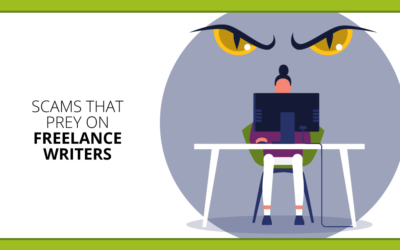
Even if you’re a genuinely happy person, sooner or later you’ll find yourself in an utterly ferocious, raging black cloud of a mood.
You know — the kind that conjures images in your mind of you as a roaring sci-fi creature with blood dripping off your fangs as you tear apart everything and everyone you come across.
OK, maybe that’s just me.
But you likely have your own equally-vivid mental picture, right?
So you’re officially in a Very Bad Mood. Now what?
Everyone has their own ways of dealing with a bad mood- exercising, eating, drinking, napping or hiding until it passes are a few.
But to succeed at making a living writing, avoiding work until the cloud clears isn’t a viable option.
This week, I found a better way to cope- train your temper on your writing, and attack it with every ounce of raw negativity you can muster. Ask the questions your biggest critic/skeptic would:
“Who cares?”
Who’s your audience, anyway? That’s who should care.
If you’re not writing for them, you are missing the mark. Every single word should be aimed right at your readers- never forget, it’s not about you. It’s about them.
“So what?”
If it’s not readily apparent why what you’re writing about matters, your readers won’t bother to dig for the relevance.
If it matters, say why (or better yet, show why).
If it doesn’t matter, delete it and write instead about what does.
“What bullsh*t!”
If you don’t specify the evidence that backs your assertions, or are making broad generalizations, you’re taking the easy way out.
Go find the best supporting facts and reference them. Don’t assume something is true or generally accepted– prove it!
Highlight all the lowlights – show no mercy
Mark every single phrase containing corporate-speak, bland boilerplate, overgeneralizations, off-topic wandering and extraneous filler. Strike anything not directly on-point for your audience, including any phlegm.
When you’re done, you may find, as I did, that what’s left is tattered shreds of red-lined text that once seemed to be a good piece.
But don’t despair… from the ashes rises the phoenix.
Now, fix it.
You may not be able to do this while you’re still in the throes of your bad mood, but you may find you can-there is therapeutic value in venting all that negativity at something.
If not, set aside the mess you just made and come back to it later, when you’re in a better frame of mind.
Then, do that magical thing you do as a writer– delete, refocus, rework and rewrite, until there’s no opening for attack, even from someone in a mood as bad as yours was.
Your family will appreciate your taking it out on your work instead of them, and the improvement in the quality of your writing may surprise you.
Have you found a way to turn a bad mood to your advantage as a writer? Share your strategies for coping in the comments below.
Julie Ladd (@copyshark), Owner and Copy Stylist-in-Chief of Copyshark.net, helps businesses grow by leveraging the power of language to convert prospects to customers, even through the occasional very bad mood.









